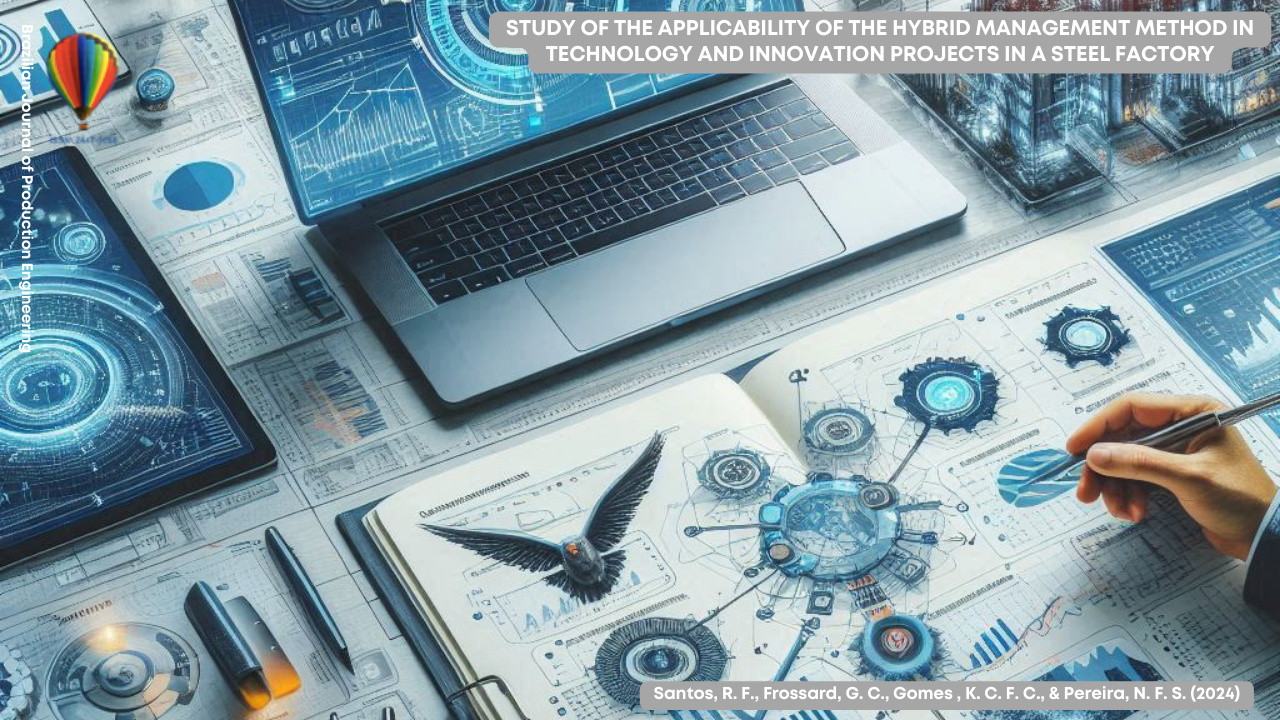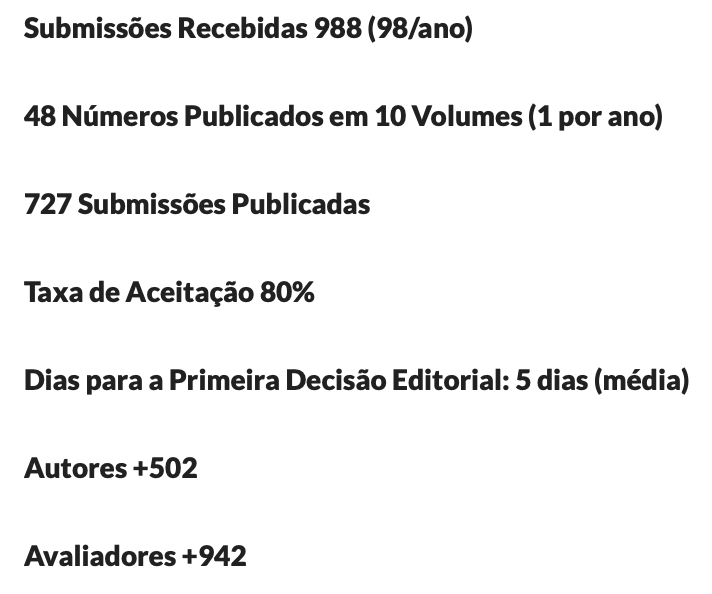Study of the applicability of the hybrid management method in technology and innovation projects in a steel factory
DOI:
https://doi.org/10.47456/bjpe.v10i2.44776Keywords:
Project management, Technological innovation, ScrumAbstract
Technology and innovation projects face increasing complexity in the dynamic context of digital transformation. To deal with this challenge, organizations are looking for more flexible project management models capable of managing the constant changes in this environment. This study examines how a steel company balances traditional and agile project management practices while developing technology projects. The study is based on reviewing the literature, project management topics and structuring the hybrid management model. The methodology used was qualitative research, described by its applied nature. A Case Study was carried out to elucidate critical points of the proposed discussion. The scientific contribution of this study lies in its ability to demonstrate how organizations can adapt to the dynamic environment of digital transformation by employing hybrid approaches. The results obtained during the research are presented, highlighting how flexibility and adaptability are relevant to dealing with the environment's complexities and how less predictability in deadlines and continuous dependence on communication indicate the need for constant attention. Finally, it is concluded that a hybrid methodology is necessary to deal with projects that involve technology and innovation.
Downloads
References
Almeida, I. M., de & Souza, F. B. de. (2016). Estudo conceitual da aplicação combinada dos métodos SCRUM e CCPM para gerenciamento flexível de múltiplos projetos. Revista Gestão da Produção Operações e Sistemas, 11(4), 117-140. https://doi.org/10.15675/gepros.v11i4.1554 DOI: https://doi.org/10.15675/gepros.v11i4.1554
Barboza, L., Vaz, A., Antunes, T., & Salume, P. (2016). Análise comparativa entre as abordagens ágil e tradicional de gestão de projetos: Um estudo de caso no setor industrial. Simpósio Internacional de Gestão, Projetos, Inovação e Sustentabilidade, São Paulo, SP, Brasil. Recuperado de https://singep.org.br/5singep/resultado/289.pdf.
Bennett, N., & Lemoine, J. (2014) What a Difference a Word Makes: understanding threats to performance in a VUCA world. SSRN Electronic Journal, 57(3), 311-317. http://dx.doi.org/10.2139/ssrn.2406676. DOI: https://doi.org/10.1016/j.bushor.2014.01.001
Dao, B., Kermanshachi, S., Shane, J., Anderson, S., & Hare, E. (2016) Identifying and Measuring Project Complexity. Procedia Engineering, 145(1), 476-482, http://dx.doi.org/10.1016/j.proeng.2016.04.024 DOI: https://doi.org/10.1016/j.proeng.2016.04.024
Moura, R., Carneiro, T., & Dias, T. (2023). VUCA environment on project success: the effect of project management methods. Brazilian Business Review, 20(3), 236-259. http://dx.doi.org/10.15728/bbr.2023.20.3.1.en. DOI: https://doi.org/10.15728/bbr.2023.20.3.1.en
Lakatos, E. M. & Marconi, M. de A. (2018). Fundamentos de Metodologia Científica. Vol.1, 7a ed. 163-169 p. São Paulo: Atlas S.A.
Miller, C. C. & Cardinal, L. B. (1994). Strategic Planning and Firm Performance: A synthesis of more than two decades of research. Academy of Management Journal, 37(6), 1649-1665. http://dx.doi.org/10.2307/256804. DOI: https://doi.org/10.5465/256804
Owen R., Koskela, L., Henrich, G., & Codinhoto, R. (2006). Is Agile Project Management Applicable to Construction. Proceedings IGLC-14. 51-66. Recuperado de https://core.ac.uk/download/pdf/30733598.pdf
Project Management Institut (PMI). (2013). Um guia do conhecimento em gerenciamento de projetos (Guia PMBOK). 5. ed. Newton Square, Pensilvânia, USA. Recuperado de https://wiki.tce.go.gov.br/lib/exe/fetch.php/acervo_digital:pmbok5.pdf
Reiff, J. & Schlegel, D. (2022). Hybrid Project Management - A Systematic Literature Review. International Journal of Information Systems and Project Management, 10(2),45-63. http://dx.doi.org/10.12821/ijispm100203 DOI: https://doi.org/10.12821/ijispm100203
Rico, D. F. (2011). What is the Return on Investment (ROI) of Agile Methods. Research Gate. Recuperado de https://www.researchgate.net/publication/266297944_What_is_the_Return_on_Investment_ROI_of_Agile_Methods
Rocha, A. C. de S., Rizzi, R. S., Araujo, F. de, Souza, F. L. de, & Almeida, L. F. M. de. (2021). Proposta de um modelo híbrido de gestão de projetos sociais realizados por organizações não governamentais. Brazilian Journal of Business, 3(1), 832-844. http://dx.doi.org/10.34140/bjbv3n1-046 DOI: https://doi.org/10.34140/bjbv3n1-046
Rogers, D. L. (2017). Transformação Digital: Repensando o seu negócio para a era digital. Vol.1, 1a ed. 107-111 p. São Paulo: Autêntica Business.
Sbrocco, J. H. T. de C. & Macedo, P. C., de. (2012) Metodologias ágeis: Engenharia de software sob medida. Vol.8. 1a ed. 9p. São Paulo: Editora Érica.
Schwaber, K. & Sutherland, J. (2020). O Guia do Scrum O Guia Definitivo para o Scrum: As Regras do Jogo. Recuperado de https://scrumguides.org/docs/scrumguide/v2020/2020-Scrum-Guide-PortugueseBR-3.0.pdf
Silva, F., Conforto, Ed., Amaral, D., & Rebentisch, E. (2015) Modelos Híbridos – Unindo complexidade, agilidade e Inovação. Revista Mundo PM. 11(64). 10p. São Paulo, SP, Brasil.
Sousa, R. N. & Almeida, G. (2020) Abordagem Híbrida na Gestão de Projetos de Tecnologia e Automatização de Processos. Boletim do Gerenciamento, 19(19), 20-32. Recuperado de https://nppg.org.br/revistas/boletimdogerenciamento/article/view/470
Souza, E. R. E., de. (2022). Aplicação de método híbrido de gestão para projetos de tecnologia da informação. Repositório Institucional - Universidade Federal de Uberlândia. Recuperado de https://repositorio.ufu.br/handle/123456789/36130
Szpitter, A. & Sadkowska, J. (2016). Using VUCA matrix for the assessment of project environment risk. Zarządzanie i Finanse. 14(1), 401–413. Feb.2016. Recuperado de https://www.researchgate.net/publication/309384253_Using_VUCA_matrix_for_the_assessment_of_project_environment_risk
Vargas, R. (2017). Gerenciamento de projetos: Estabelecendo diferenciais competitivos. 7a. ed. 44 p. Rio de Janeiro: Brasport.
Ventura, M. M. (2007). O estudo de caso como modalidade de pesquisa. Revista da Sociedade de Cardiologia do Estado do Rio de Janeiro. Vol.20, n.5, 383-386p. Rio de Janeiro, RJ, Brasil. Recuperado de http://sociedades.cardiol.br/socerj/revista/2007_05/a2007_v20_n05_art10.pdf
Vinekar, V., Slinkman, C. W., & Nerur, S. (2006). Can Agile and Traditional Systems Development Approaches Coexist? An Ambidextrous View. Information Systems Management, 23(3), 31-42. http://dx.doi.org/10.1201/1078.10580530/46108.23.3.20060601/93705.4 DOI: https://doi.org/10.1201/1078.10580530/46108.23.3.20060601/93705.4
Yim, R., Castaneda, J., Doolen, T., Tumer, I., & Malak, R. (2015) A study of the impact of project classification on project risk indicators. International Journal of Project Management, 33(4), 863-876. http://dx.doi.org/10.1016/j.ijproman.2014.10.005 DOI: https://doi.org/10.1016/j.ijproman.2014.10.005

Downloads
Published
How to Cite
Issue
Section
License
Copyright (c) 2024 Brazilian Journal of Production Engineering

This work is licensed under a Creative Commons Attribution-NonCommercial-ShareAlike 4.0 International License.

















































































